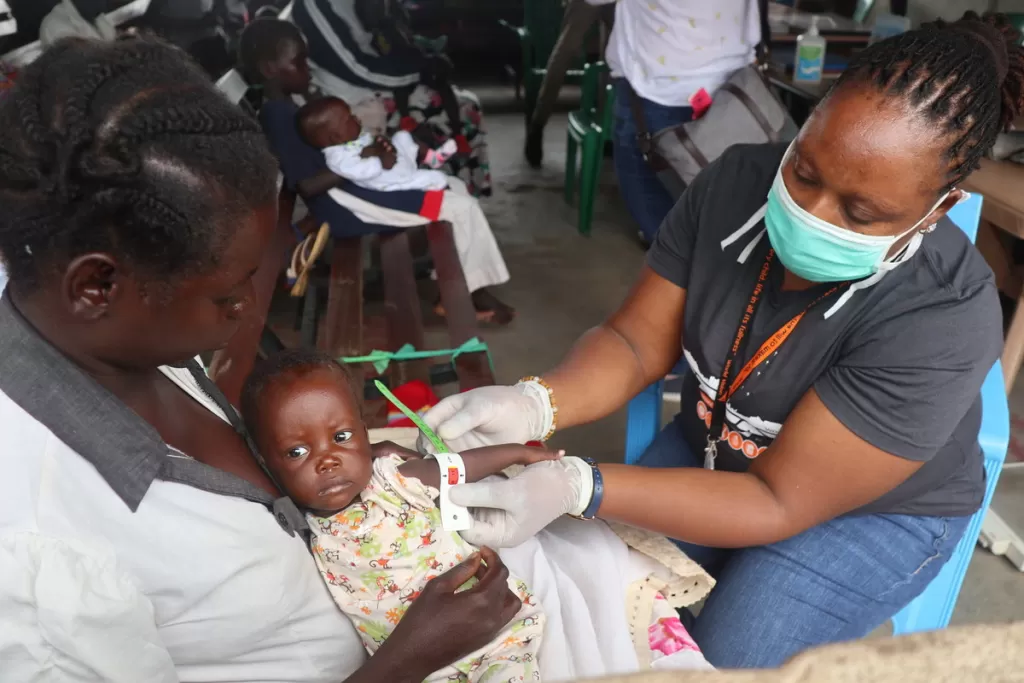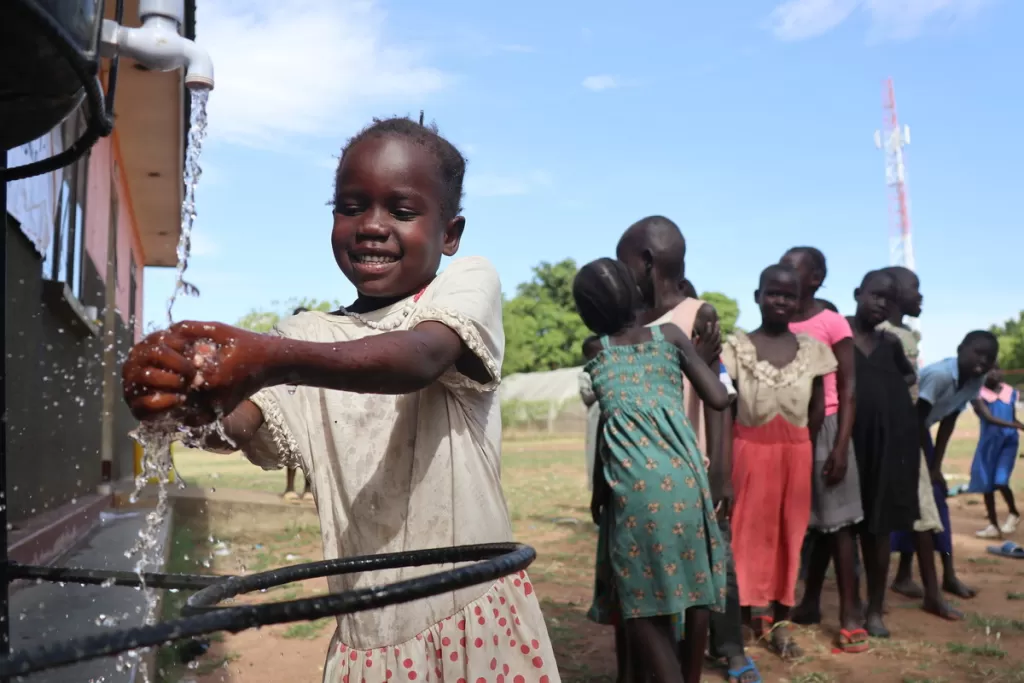It really challenged me from a human point of view, just to sit and be present with them, with my heart breaking at the thought of what it must be like to live there day after day. I was in complete shock, whilst being in awe of their resilience and dignity.
When you add coronavirus into the mix though, it’s just a devastating scenario. Here at home, I’m able to go out in the fresh air, walk in my garden and feel the breeze on my face.
In these types of crowded camps, there is no greenery, nowhere to find a secluded space or a cool breeze. And the speed at which the virus could spread through a camp is frightening. Many camps have little running water to wash their hands and protect themselves.
The people I met were desperate to be able to return home but were grateful that there was somewhere that could keep them safe. There was a sense that the people there had survived the worst, and there was hope for something better.
With coronavirus now spreading in South Sudan – the 2,400 confirmed cases a clear underestimate because of lack of testing – it doesn’t look so safe.
The combination of malnutrition and chronic ill health among the population means the virus is likely to have an even more devastating impact. Social distancing is virtually impossible in crowded camps where all amenities are communal. I’ve seen the limited health facilities that do not have the staff or equipment to cope, leaving thousands at risk if the virus goes unchecked and spreads freely.
Alarmingly, this is the case for so many vulnerable populations around the world, not just South Sudan. Millions of lives are at stake as the Covid-19 pandemic hits the world’s most fragile places – countries suffering from conflict. Families who have been forced to flee their homes and lost everything in other places like Yemen, Syria and Somalia face a deadly new threat in this virus.
There are 24 million internally displaced people in total in these fragile states, and an additional 850,000 Rohingya people living in the world’s biggest refugee camp in Bangladesh.
That’s why I’m supporting the Disasters Emergency Committee’s Coronavirus Appeal, which is raising money for the same protection measures that we know have made a difference in the UK.


